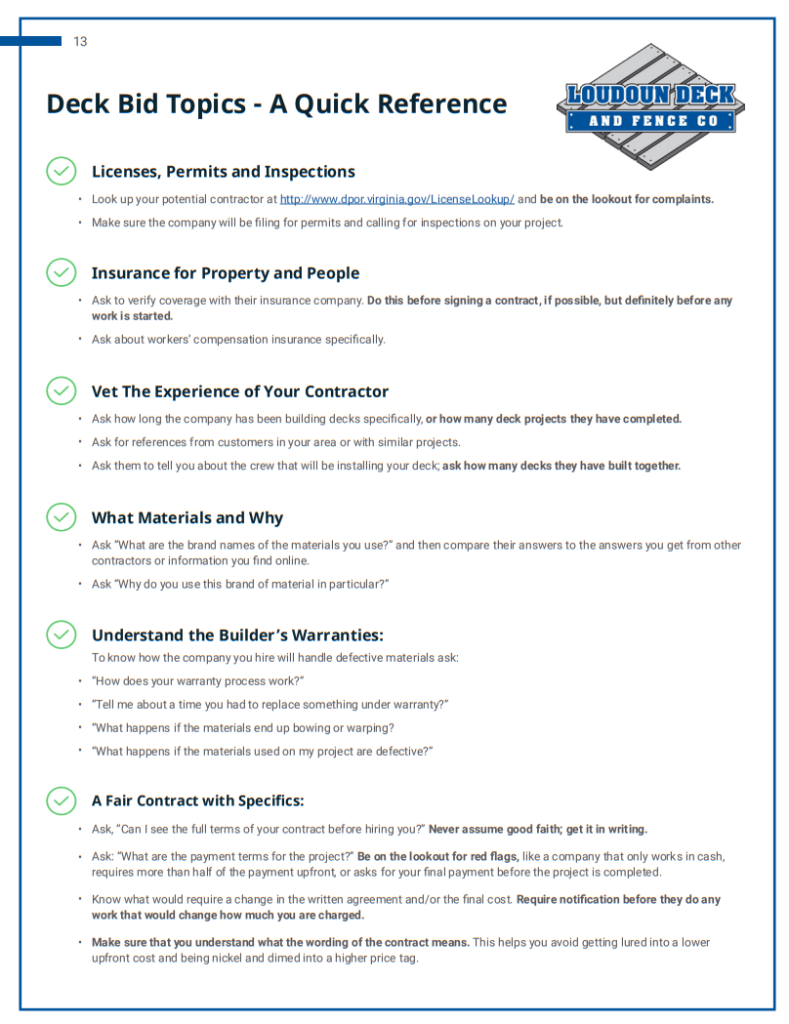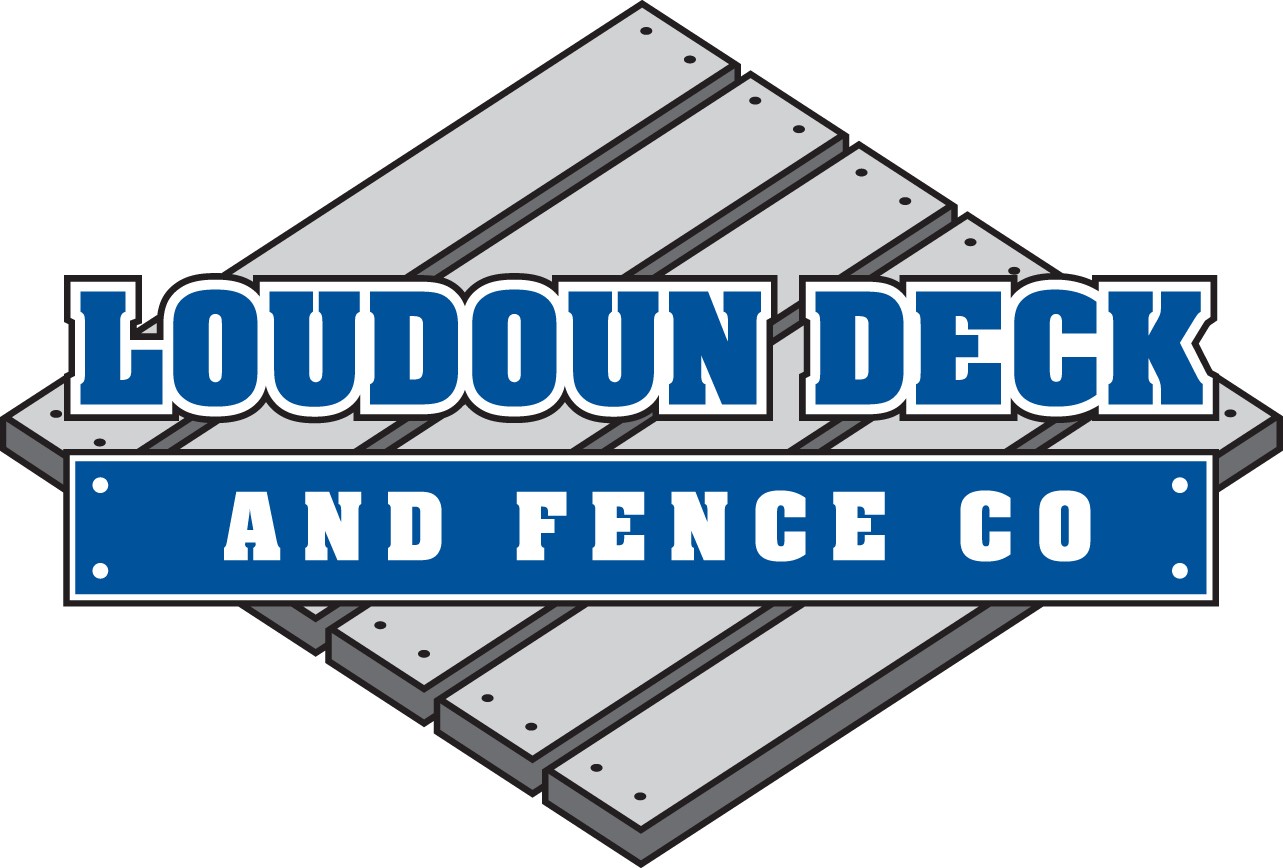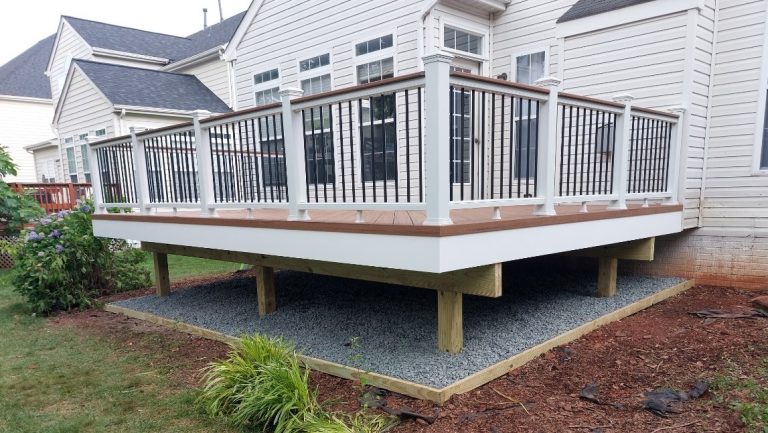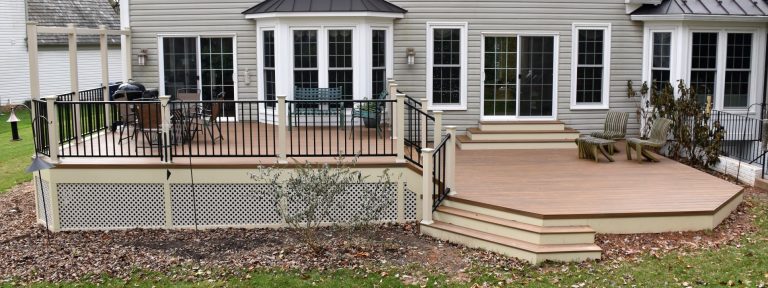1. Licenses, Permits and Inspections
Licenses
Every contractor working in your county, city, or state should be licensed with the appropriate authorities. When a contractor is licensed, it offers you some protection as the customer. Specifically, if you have grievances, you can file a complaint with the licensing body. These complaints are usually posted publicly to warn others, and if the complaints are substantiated and rise to a certain level, the governing body can revoke a contractor’s ability to have a license. In Virginia, the state has provided a helpful resource to help customers determine if a contractor is licensed with the state and if there are any complaints against the company or owner.
Permits and Inspections
If you are working with a reputable contractor, they should be getting permits with the county for the project. Established contractors don’t usually ask that you apply for the permits as the homeowner.
Helpful Tips To Remember:
- Verify that your deck builder is licensed. Here’s the link to look up your potential contractor in Virginia: http://www.dpor.virginia.gov/LicenseLookup/. Make sure you can find the company, and be on the lookout for complaints.
- Ask the company if they will be filing for permits and calling for inspections for your project. If they ask you to apply for the permits, or want to avoid inspections all together, this should be a red flag.
At Loudoun Deck and Fence we have all the necessary licenses to work in the counties where we build. In fact, our decks are typically built above code requirements. We pull all of the permits and get all of the inspections associated with your project, and we even help provide renderings for your HOAs.
2. Insurance for Property and People
One of the most common ways that construction companies cut costs is by not being fully insured. Accidents happen. And on construction sites, when accidents happen, the property can get damaged and people can get hurt. If an accident happens on your project, you may be liable for the damages and injuries. Here are some of the different types of insurance a company should carry to make sure you won’t be liable.
Liability
Liability insurance is the cheaper and more common of the two types of insurance that construction companies should have. When contractors say they are “licensed and insured,” they are usually referring to liability insurance. Liability insurance covers your property in the event that it is damaged during the building process. Make sure that your contractor carries enough liability insurance to cover your property and belongings if accidents happen. This way, you can ensure that you aren’t on the hook if the project causes damages to your home.
Workers’ Compensation Insurance
While liability insurance is a must, it’s not the only insurance your contractor should have. To protect yourself, you should only work with companies that cover their employees with workers’ compensation insurance. In some instances, if your contractor doesn’t have workers’ compensation insurance, you could be liable for injuries that occur on your property.
Because construction is injury prone, workers’ compensation insurance can be expensive for deck builders. This high cost causes some less-reputable contractors to skip workers’ compensation insurance altogether so they can offer more competitive bids. Be aware that these lower bids could put you, the homeowner, at risk of paying much more if someone gets injured on your property.
Helpful Tips to Remember:
- Ask the contractor what insurance coverage they have. Be sure to ask specifically about workers’ compensation insurance to make sure you won’t be on the hook for accidents that happen on your property.
- You, as the homeowner, are entitled to get proof of coverage from their insurance company. If you are concerned by a contractor’s answer to your insurance questions, be sure to verify the builder’s coverage before any work is started on your property.
While we hope we never have to use it, Loudoun Deck and Fence carries enough insurance to easily cover our work, employees, and the properties we work on.
3. Vet The Experience of Your Contractor
No two projects are exactly the same. There are hundreds of potential challenges that could come up on your project – the more decks a company has completed, the more likely they are prepared to tackle unique circumstances on your job. Having the experience to know how to approach and overcome these obstacles can make a huge difference in the quality, completion timeline and price of your deck. Here are a few things to consider when gauging the experience of your potential contractor.
Years of Experience
Vetting experience is more than just a safety concern. You want a contractor that has been around long enough to see the long term results of their work. For example, there are subtle differences we have made in design and construction over 25 years that make a big difference in the end result of our decks.
All decks are NOT created equal. An experienced builder can tell you the common mistakes to avoid in the design of your deck, which materials work well together, how to place posts so they don’t obscure your view or walkway, and when building just to code isn’t enough to ensure your deck feels stable. If your conversation with a contractor during the design consultation centers exclusively around cost per square foot, it’s likely you’re not getting the best value you could for your money.
Building In Your Area
Every neighborhood has different challenges and quirks to work around. Knowing the neighborhood, the HOA requirements, and where a gas line or septic tank field is placed in the yard can inform the possible designs and overall quality of the final build. Having a builder that knows your area is a huge leg up in getting the project done right for your needs.
Experience of the Crew
Your deck will only be as good as the crew who installs it. Because it’s very likely that the person who meets to bid your project won’t be the one cutting every board and placing every screw, it’s important to ask about their crews. A great gauge for the quality of a company and the experience level of their workers is how long they’ve built together. The longer employees stick around, the better they get at their jobs, and the better value you get by hiring them. In short, a deck built by a crew that’s worked together for years, will be better than a deck built by a crew that was assembled last week.
Helpful Tips to Remember
- Ask how long the company has been building decks specifically, or how many deck projects they have completed.
- If you have concerns about experience, you can also refer back to the license lookup.
- Ask for references from customers in your area or with similar projects. If they cannot offer references from customers similar to yours, they may not have the experience to pull off your unique project.
- Ask them to tell you about the crew that will be installing your deck or how many decks they have built together.
Loudoun Deck and Fence has been building decks and fences in Loudoun County for 25 years. In that time, we have completed thousands of projects in almost every town and neighborhood in Loudoun County. Our crews have had years working together, following our proven process that delivers quality every time. We are happy to refer you to a project we’ve done near you to check out.
4. What Materials and Why
Along with design and craftsmanship, one of the biggest factors in the quality of your deck is the quality of the materials being used. Using lower quality materials can lower the bid for your project in the short term, but doing so can greatly affect the durability, safety and appearance of your deck in the long run. Be sure to ask for the specific names of the materials used and compare them for yourself. There is great information about every brand of materials online. Do your research, and ask why your contractor uses the materials they do.
Helpful Tips to Remember:
Verify with your own research. You can ask “What are the brand names of the materials you use?” and then compare their answers to other contractors or information you find online.
Ask “Why do you use this brand for my project?”
Read more about Common Material Tiers and Railing and Trim Options
5. Understand the Builder’s Warranties
Craftsmanship Warranty
Companies are made up of humans, and humans make mistakes. When things go wrong, you learn that not all warranties are created equal. Before you sign a contract, you should ask how the contractor handles errors in their craftsmanship. Make sure you feel comfortable that any mistakes that happen during your project will be corrected without hassle or unfair charges.
Warranties on Defective Materials
As a homeowner, it’s not just the quality of the construction that you need to worry about. What materials you use directly affect the quality and longevity of your deck. There are always new materials or new processes that are used to manufacture materials or treat wood. Unfortunately, sometimes, materials used won’t stand the test of time. When it comes to protecting yourself from low quality or defective materials, knowing and vetting the warranty information of the materials used in your project is as important as vetting the company doing the work.
Materials warranties can be tricky, because all decks are built, at least in part, out of pressure-treated wood. This wood is a natural material, and some bending, bowing and shrinking happens with even the highest quality wood products. This is especially true when the deck is exposed to the four seasons we enjoy here in Virginia. Make sure you know what your builder considers normal changes in wood used on your deck, and what is considered defective material that can be replaced with no additional cost.
Helpful Tips To Remember:
To know how the company you hire will resolve quality issues, ask:
- “How does your warranty process work?”
- “Tell me about a time you had to replace something under warranty?”
- “What happens if the materials end up bowing or warping?
- “What happens if the materials used on my project are defective?”
Our core values of quality, honesty and integrity dictate that we stand behind our work and fix mistakes when they happen. Over the years, a wide variety of styles and materials have grown in popularity. Some new materials prove their quality and stick around for years, while others aren’t all they promised. We have no financial or contractual obligation to any company or brand of materials. Our recommendations are based on our 25 years of experience and track record of using materials that balance budget, ease of maintenance and durability.
6. A Fair Contract With Specifics
Verbal agreements, vague wording, and ambiguous or under-the-table payment schedules put your time, money, and the quality of the project at risk. Before giving money to any contractor, make sure you have the full, signed contract in writing. Your contract should include a detailed description of the work to be done, specific materials to be used, payment terms, and timeframes in which work will occur.
Helpful Tips To Remember:
- Ask, “Can I see the full terms of your contract before hiring you?” Never assume good faith; get it in writing.
- Ask: “What are the payment terms for the project?” Be on the lookout for these red flags:
- A company that only works in cash
- A company that requires more than half of the project price upfront
- A company that asks for the your final payment before the project is completed
- Know what level of changes require an update to the contract. Require notification before they do any work that would change how much you are charged.
- Make sure that you fully understand what the wording of the contract means. Clear contracts protect you from being nickel and dimed into a higher price tag.
Final Note: A Quality Builder Will Put Your Mind At Ease
Quality deck builders will vary slightly in their answers to all of these questions, but when they discuss the topics mentioned in this guide, they should be able to give you credible information that is independently verifiable to put your mind at ease. Don’t settle for ambiguous answers or be pressured into making decisions you’re not comfortable with. Following these steps will help protect you from headaches and bad outcomes, and greatly increase your chances of getting a deck that you’ll love for a long time.
A Simplified Cheat Sheet




